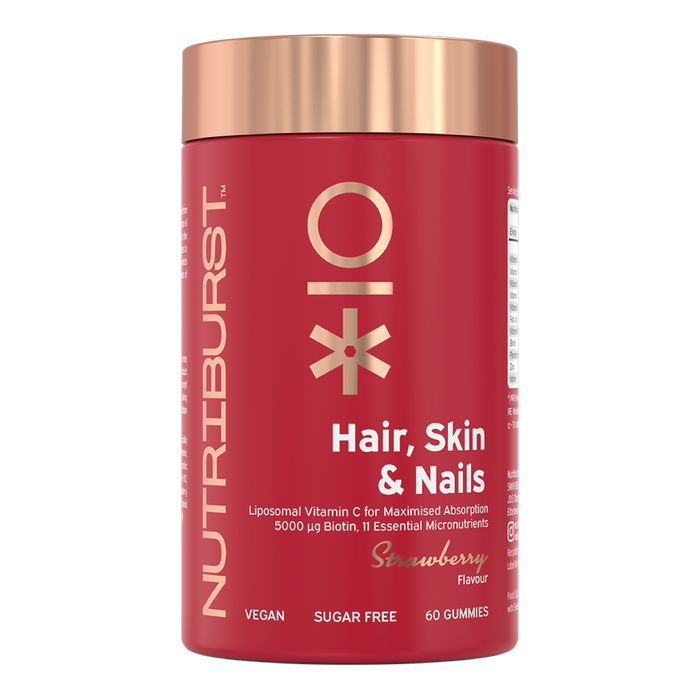What foods are high in collagen?

Welcome to our guide on maximising collagen production through diet and supplements with practical tips and insights to support your body's natural collagen synthesis. Collagen is vital for skin elasticity, joint health, and overall vitality. Let's explore how you can enhance collagen levels through dietary choices and targeted supplementation.
Understanding the crucial role of collagen
Collagen, akin to the body's scaffolding, provides the support structure for our skin, joints, and bones, maintaining their integrity and suppleness. As we age, collagen production naturally declines, leading to signs of ageing such as wrinkles and joint stiffness. By supporting collagen production through diet and supplements, we can promote healthier skin, stronger joints, and overall well-being.
Where to find natural collagen sources
When it comes to natural collagen sources, quality matters just as much as quantity. Opting for high-quality sources ensures that you're not only getting ample collagen but also reaping the full spectrum of nutrients that support collagen synthesis and overall health. Here's how to pick the best vegan collagen sources for your diet:
- Soy Products: Soy milk, tofu, and tempeh are rich in proteins that aid in collagen production.
- Nuts and Seeds: Almonds, chia seeds, and flaxseeds provide essential fatty acids and proteins that support skin health and collagen synthesis.
- Legumes: Beans, lentils, and chickpeas are high in protein and amino acids that promote collagen production.
- Whole Grains: Oats, quinoa, and barley contain essential nutrients like zinc and iron, which are important for collagen synthesis.
By prioritising high-quality collagen sources, you can ensure your body receives the nourishment to support collagen production and maintain optimal health and vitality.
Integrate fruits, vegetables, and collagen-boosting supplements
Certain foods and supplements can complement your diet and support collagen synthesis. This is a great alternative for vegans, vegetarians, or those with dietary restrictions looking to boost collagen production without compromising their lifestyle.
Key Nutrients and supplements
- Vitamin C: Promotes the conversion of proline and lysine into hydroxyproline and hydroxylysine, essential building blocks of collagen molecules, and antioxidants to protect collagen from oxidative damage, preserving its structural integrity.
High-quality collagen-boosters
Look for vegan collagen-boosting supplements like our Hair, Skin & Nails, formulated with:
- Liposomal Vitamin C: Enhances collagen synthesis and promotes skin, bone, and teeth health.
- Vitamin E: contributes to collagen protection and supports skin cell health.
- Zinc: Supports collagen production and helps maintain skin health.

Fruits and vegetables
Fruits and vegetables themselves are not direct sources of collagen but play a crucial role in supporting collagen synthesis and maintaining healthy skin, joints, and connective tissues.
Here are some fruits and vegetables rich in nutrients essential for collagen production:
- Citrus fruits (oranges, lemons, grapefruits): Rich in Vitamin C, needed for collagen synthesis.
- Bell peppers (red, yellow, green): Excellent source of Vitamin C, essential for collagen production.
- Berries (strawberries, blueberries, raspberries): Packed with antioxidants that protect collagen from oxidative damage.
- Dark leafy greens (spinach, kale, Swiss chard): Rich in Vitamins A, C, and E, which promote collagen production and skin health.
- Broccoli: Contains Vitamin C and antioxidants, supporting collagen synthesis and skin elasticity.
- Tomatoes: High in Vitamin C and Lycopene, which protect collagen from UV damage and support skin health.
- Sweet potatoes: Rich in Beta-Carotene (a precursor to Vitamin A), essential for skin regeneration and collagen production.
How to further maximise collagen absorption
To ensure you’re getting the most out of your collagen-supporting foods and nutrients, consider integrating the following tips into your lifestyle:
- Stay hydrated: Adequate hydration is essential for optimal collagen production. Drink plenty of water throughout the day to support skin hydration and overall health.
- Limit sugar and processed foods: Excessive sugar consumption and processed foods can contribute to collagen degradation and accelerate ageing. Opt for whole, nutrient-dense foods to preserve collagen integrity and promote skin health.
- Prioritise nutrient-dense diet: Incorporate nutrient-dense foods into your diet, including fruits, vegetables, lean proteins, and healthy fats, to provide your body with the essential nutrients it needs for collagen synthesis and overall well-being.
By incorporating collagen-boosting foods into your diet, you can support your body's natural collagen production and promote overall health and vitality. Remember to choose nutrient-dense foods and quality supplements to optimise your collagen levels and enjoy the benefits of healthier skin, joints, and bones.
Disclaimer:
While dietary choices and supplements can support collagen production and overall health, it's essential to remember that individual results may vary. Consult with a healthcare professional before making significant changes to your diet or lifestyle, especially if you have existing health conditions or concerns.
Continue reading:

Rediscover the Bounce in your Skin - The New Skincare Routine You Swallow

As with all gifts, small is beautiful… and in this case, tiny technology really delivers.

Liposomal Vitamin C: The Collagen Whisperer Your Skin’s Been Waiting For.

Your Second Brain Is in Your Belly: The Gut-Brain Axis Explained

How to Keep Your Gut Happy This Holiday Season (Even If You Hate Sprouts).
